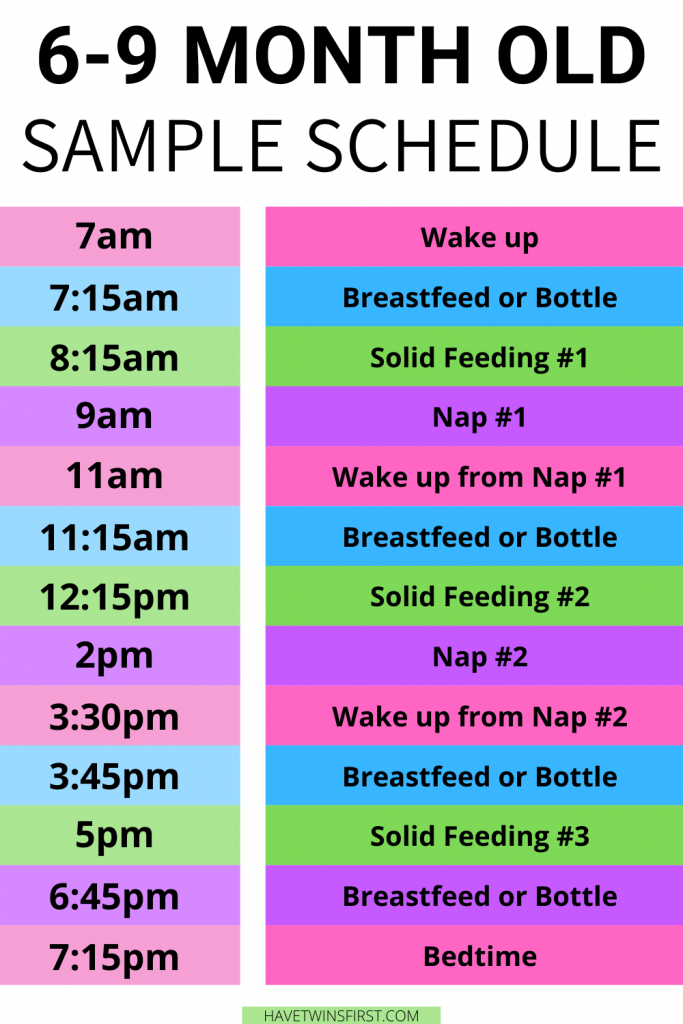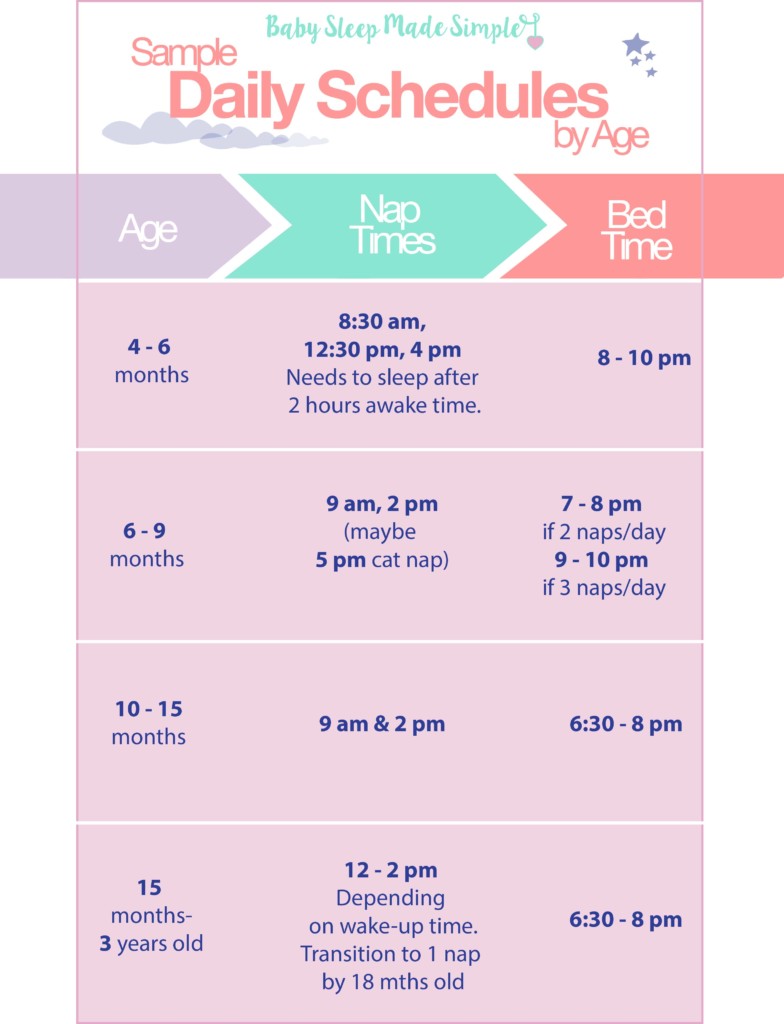
You’ll start to notice self-soothing behaviors around 4 months, but most babies need help with soothing until they’re about 6 months. At this point, they’ll have more control over their movements and reflexes. This reflex - while incredibly adorable - can jolt your baby awake, so it stands to reason that this decrease helps extend sleep. Your baby’s Moro, or startle, reflex decreases by age 3–6 months.

Talk to your pediatrician for exact recommendations for how often your baby needs to eat.

By 6 months, your baby will likely be eating every 4–5 hours and may be able to sleep even longer stretches at night.

At 3 months, your baby may go from feeding every 2–3 hours to every 3–4 hours. As your baby grows, nighttime feedings will gradually decrease. Hallelujah! If you’re interested in the reasoning - and not just the bottom line (more sleep!) - here it is: Starting at 3 months, your baby may start to sleep for longer stretches at a time. And remember - breast or formula, a fed baby is the best baby. Talk to your baby’s pediatrician for specific instructions for how often they’ll need to feed. Then your baby may still need to breastfeed every 1.5–3 hours for the first 1–2 months, but may be able to sleep longer stretches at night.įormula-fed babies may need to get a bottle every 2–3 hours. You’ll also likely need to breastfeed at least 8 to 12 times every 24 hours until your milk supply comes in during the first week or two. So when you’re breastfeeding, your baby may be hungry more often. Breast milk tends to move through your baby’s digestive system faster than formula. formula-fed babiesīreastfed babies may have slightly different sleeping schedules than formula-fed babies during this time. In the first couple of weeks, it’s possible that you’ll need to wake your baby for feedings if they’re not waking on their own at these intervals, especially if they haven’t gotten back to their birthweight yet.Ī lot of development also occurs during these months, so your sleepless nights will pay off - with interest. Your baby will usually make this need loud and clear, but talk to your pediatrician. Their stomachs are tiny, so they need to eat every 2–3 hours. Some newborns have their days and nights confused, so they sleep during the day and are often awake at night. It’s known as the fourth trimester because your baby is adjusting to time outside your womb - and sometimes, quite honestly, misses it and wishes to be back in it! The fourth trimester, or newborn period, is the timeframe when your baby is 0–3 months. You were probably told that pregnancy consists of three trimesters. Let’s take a deeper dive into what to expect. Parenthood is beautiful, and so are you.) (And never, ever compare your unfiltered selfie to a fellow new parent’s Snapchat or Instagram photo. While some babies sleep through the night at 6 months and this might be considered the “norm,” others won’t until 1 year - but either way, there’s more consistent sleep in the future for both you and baby.Įvery baby is different, so try not to compare your baby’s sleep habits to someone else’s.

There’s no one-size-fits-all timeframe for when your baby will sleep through the night - disappointing, right? - but it will happen. (And unlike you, they can’t serve themselves.) And just like you, they’re vocal when they need food. They’re (usually) waking up throughout the night because they’re hungry. This can be disheartening for new parents.īut keep in mind that your newborn still has a small stomach. They may sleep up to 17 hours in a day, sure - but perhaps only for 1–2 hours at a time in some cases. They have sporadic sleep patterns that can be puzzling and even change from one week to the next. A note about differencesĪs much as we might want to schedule our lives, for about the first 6 months of their lives, babies have different ideas. So resist the temptation to go wild with the Snapchat filters to correct those dark circles - and know that you’re not alone in waiting for this beautiful milestone. The good news is, babies tend to start sleeping through night around 6 months of age on average. One thing you might not be so eager to share? How sleep deprived you feel. From squeezing your finger to first smile, your baby has you reaching for the camera and proudly sharing these moments with friends and family. You love your new little one to pieces and cherish every milestone.


 0 kommentar(er)
0 kommentar(er)
